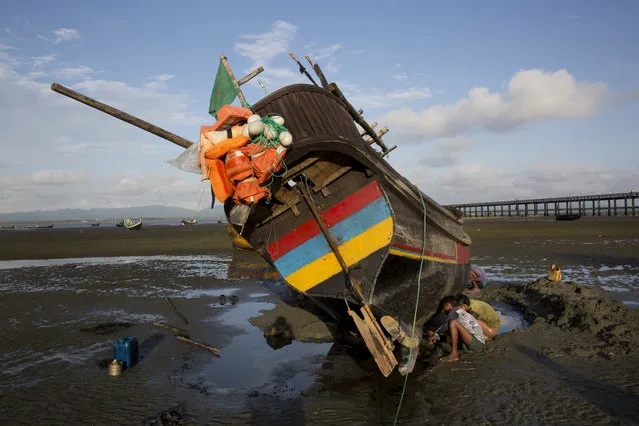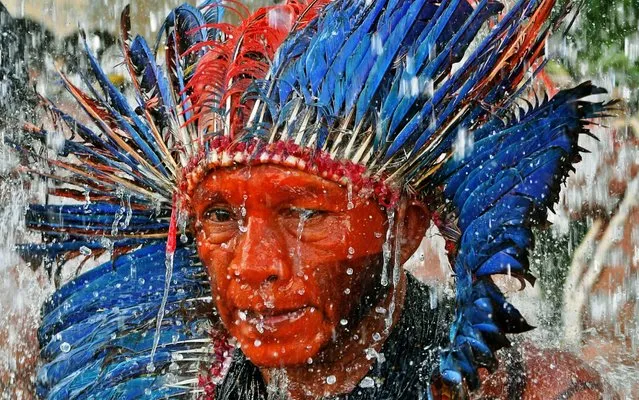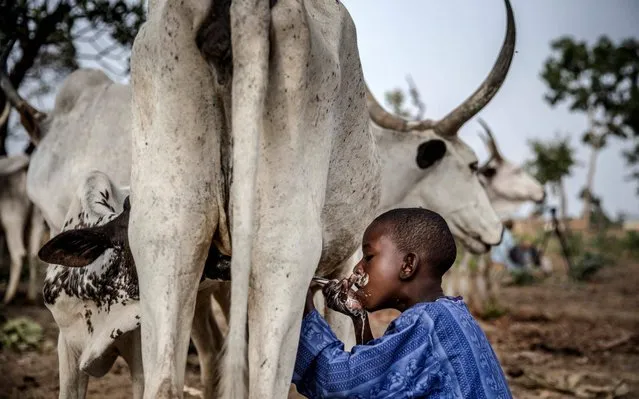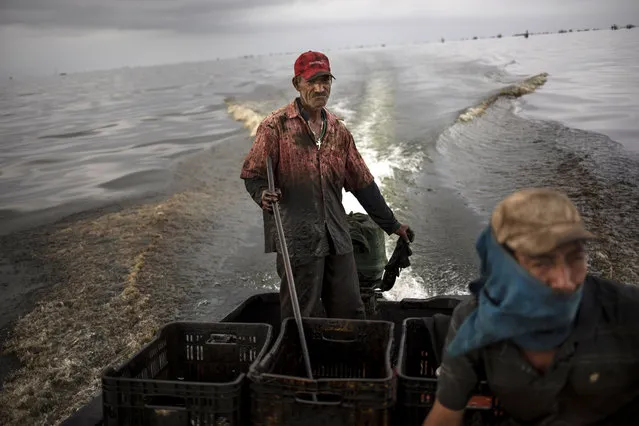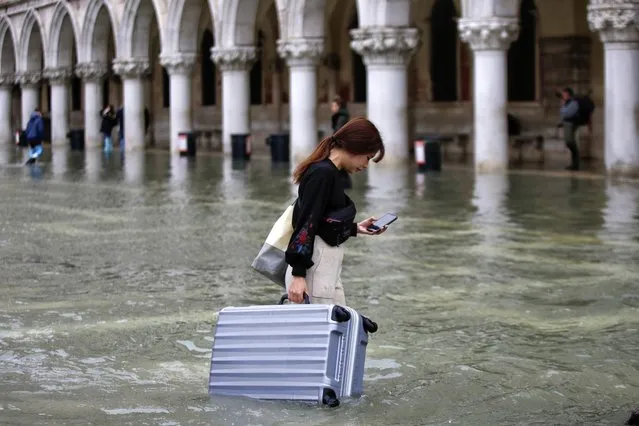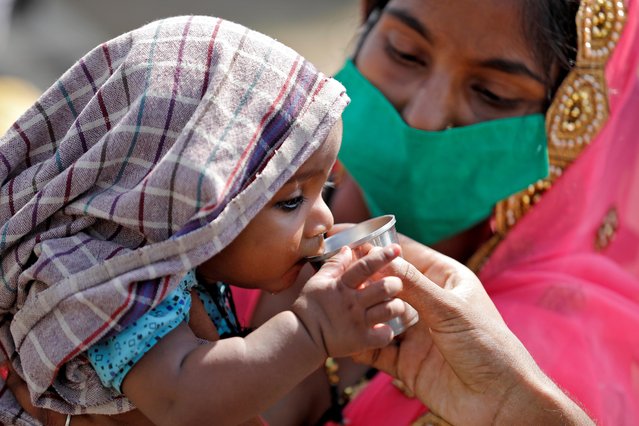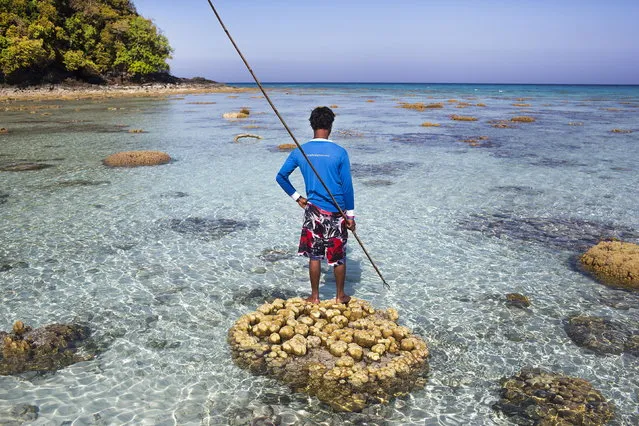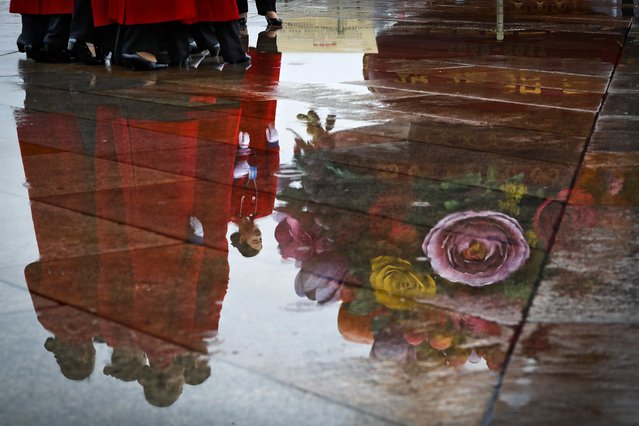
Hospitality staff are reflected in a puddle of water as they prepare to pose for photograph in front of a giant basket decorated with replicas of flowers and fruits on display on Tiananmen Square during the opening ceremony of the 19th Party Congress in Beijing, Wednesday, October 18, 2017. Chinese President Xi Jinping on Wednesday urged a reinvigorated Communist Party to take on a more forceful role in society and economic development to better address “grim” challenges facing the country as he opened a twice-a-decade national congress. (Photo by Andy Wong/AP Photo)
20 Oct 2017 06:48:00,post received
0 comments

